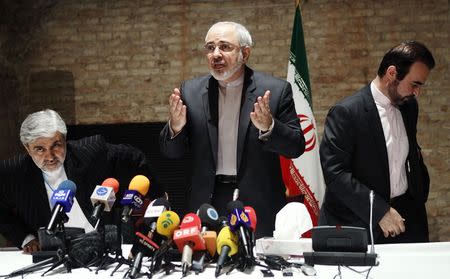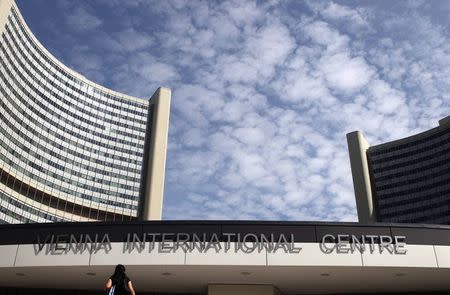Nuclear talks extended as 'significant gaps' remain - Iran, EU
By Louis Charbonneau and Parisa Hafezi VIENNA (Reuters) - Iran and six world powers have agreed to a four-month extension of negotiations on a nuclear deal with Tehran after failing to meet a July 20 deadline due to "significant gaps" between the two sides, the European Union and Iran said on Saturday. "There are still significant gaps on some core issues which will require more time and effort," EU foreign policy chief Catherine Ashton and Iranian Foreign Minister Mohammad Javad Zarif said in a joint statement. Iran, the United States, Britain, France, Germany, Russia and China had set a July 20 deadline to complete a long-term agreement that would resolve the decade-old dispute over Tehran's nuclear ambitions. But diplomats said they were unable to overcome significant differences on major sticking points. "We will reconvene in the coming weeks in different formats with the clear determination to reach agreement on a Joint Comprehensive Plan of Action (long-term agreement) at the earliest possible moment," Ashton and Zarif said. Ashton was speaking on behalf of the six powers. The extension begins July 21 and runs through November 24. It has been clear for days that Iran and the six powers would miss the Sunday deadline to reach an accord on curbing Iran's nuclear programme in exchange for the gradual lifting of sanctions due to disagreements on a number of key issues. Among the issues dividing them are the permissible scope of Iran's nuclear fuel production capacity and how to address the country's suspected past atomic bomb research. The negotiations began in February in Vienna. The talks are taking place because of a preliminary agreement reached in Geneva in November 2013 that gave Iran limited sanctions relief in exchange for halting some nuclear activities and created time and space for the negotiation of a comprehensive deal to end the decade-long dispute. But it remains uncertain whether four more months of high-stakes talks will yield a final agreement, since the underlying differences remain significant after six rounds of meetings this year. Western nations fear Iran's nuclear programme may be aimed at developing a nuclear weapons capability. Tehran denies this. The powers want Iran to significantly scale back its nuclear enrichment programme to make sure it cannot yield nuclear bombs. Iran wants sanctions that have severely damaged its oil-dependent economy to be lifted as soon as possible. After years of rising tension between Iran and the West and fears of a new Middle East war, last year's election of a pragmatist, Hassan Rouhani, as Iran's president led to a thaw in ties that resulted in November's diplomatic breakthrough. But Iran's new government still insists that the country has a right to develop a nuclear energy programme that includes the production of atomic fuel. The West fears that this fuel, if further processed, could also be used to make bombs. (Additional reporting by Fredrik Dahl; writing by Louis Charbonneau; editing by Andrew Hay)

 Yahoo News
Yahoo News 

